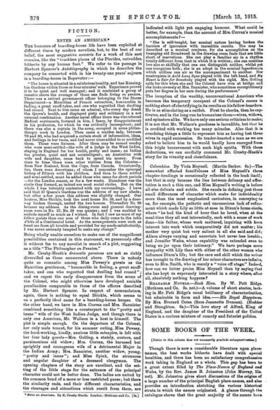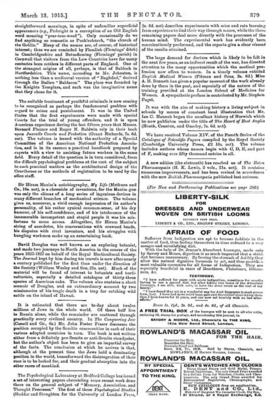SOME BOOKS OF THE - mum [Natise in thie column does
not nmeuanly preclude uttaequent mainal
Though there is now a considerable literature upon place- names, the best works hitherto have dealt with special localities, and there has been no satisfactory comprehensive work taking in England as a whole. This gap has been to a great extent filled by The Place-Names of England and Wales, by the Rev. James B. Johnston (John Murray, 15s. net). Mr. Johnston gives short discussions of the origins of a large number of the principal English place-namee, and also provides an introduction sketching the various historical strata in which the names originated. A glance through the catalogue shows that the great majority of the names base
straightforward meanings, in spite of unfamiliar superficial appeaxances Pirbright is a corruption of an Old English word meaning "pear-tree-wood "). Only occasionally do we find anything so romantic as Pucklechnrch, "the church of the Goblin." Many of the names are, of course, of historical interest; thus we are reminded by Fiendish (Flemings' ditch) in Cambridgeshire and Botustleming (Flemings' parish) in Cornwall that visitors from the Low Countries have for many centuries been settlers in different parts of England. One of the strangest origins of all, perhaps, is that of Baldook in Hertfordshire. This name, according to Mr. Johnston, is nothing less than a mediaeval version of "Baghdad." derived through the Italian " Beldame" The place wan founded by the Knights Tempters, and such was the imaginative name that they chose for it.



































 Previous page
Previous page